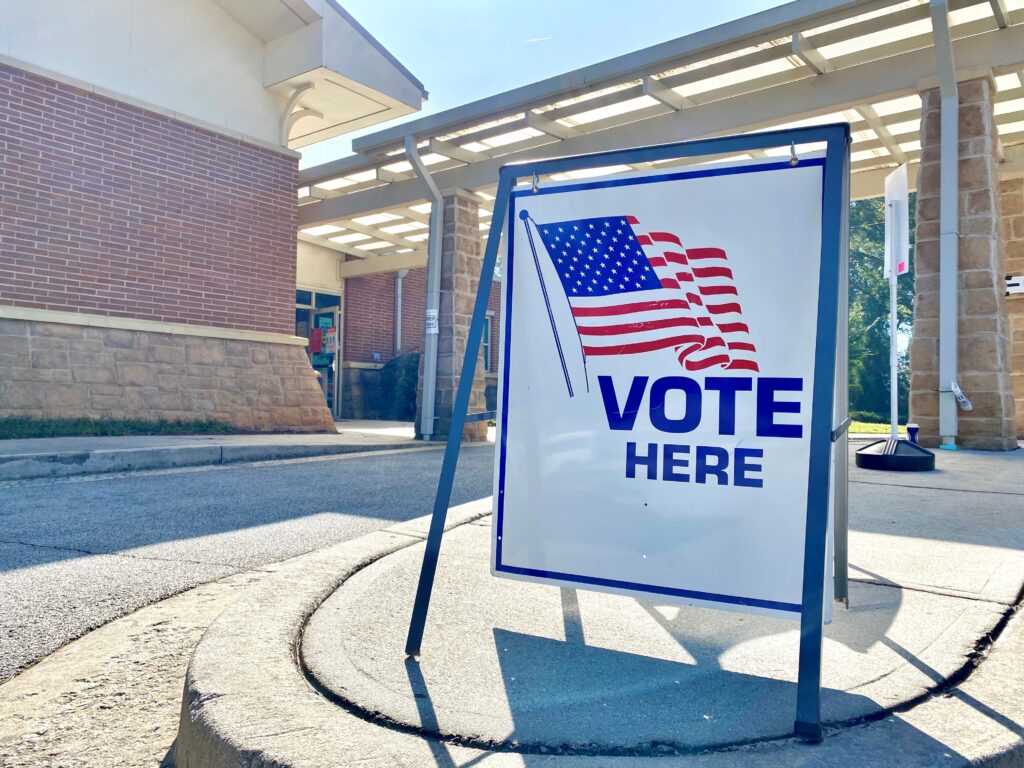
ATLANTA – An omnibus bill proposing broad changes to Georgia’s absentee and in-person voting faced more debate in a state House committee on Monday, adding to a trove of other elections-focused bills in the state Senate.
The 59-page bill contains roughly two dozen changes including controversial proposals boosting identification rules for mail-in voters, requiring absentee-ballot drop boxes to be located inside polling places and outlawing early voting on Sundays.
Other changes outlined in the bill include consolidating precincts with long wait times outside polling places, banning people from offering food or drinks to voters while they wait in line and allowing local officials to open and scan absentee ballots a week before Election Day.
Democratic lawmakers and voting-rights groups have skewered the bill, sponsored by state Rep. Barry Fleming, R-Harlem. Fleming chairs the House Special Committee on Election Integrity, which has held three hearings on the measure. It will likely face a vote this week on whether to advance to the full House.
Fleming and the bill’s backers argue the proposed changes are needed to shore up confidence in the state’s election system after the 2020 election cycle drew claims of voter fraud from former President Donald Trump, who lost the general election in Georgia to President Joe Biden by 11,779 votes.
“There has been controversy regarding our election system,” Fleming said at an earlier hearing on Feb. 18. “I believe the goal of our process here should be an attempt to restore the confidence of our public in our elections system.”
Fleming’s wide-ranging bill would also eliminate Georgia’s “jungle primary” format for special elections that place candidates from all parties for a vacant seat on the same ballot. It would scrap the kind of free-for-all election that forced former Republican U.S. Sen. Kelly Loeffler into a losing runoff with now-U.S. Sen. Raphael Warnock last month.
Democrats have slammed many aspects of the bill that squeeze access to vote-by-mail and early voting, particularly the proposed ban on Sunday hours during the three-week early voting period. Those restrictions could especially impact Black and other minority voters in Georgia who have long faced hurdles to voter access, critics argue.
State Rep. Calvin Smyre, D-Columbus, who is the General Assembly’s longest-serving member, called that change too restrictive.
“When you lift the water, all boats rise,” Smyre said an earlier hearing last week. “You give everyone the same opportunity.”
Georgia Democrats have also challenged proposals that would overhaul the state’s voter ID laws for requesting and casting mail-in ballots, which currently are verified by matching a voter’s signature on absentee ballot envelopes with that kept in the state’s registration system.
The voter ID proposal in Fleming’s bill mirrors a measure moving separately in the state Senate that would require absentee voters to provide the number of their driver’s license or official state ID card, or photocopies of a passport, employee ID card, utility bill or bank statement.
The Senate’s absentee voter ID measure, sponsored by state Sen. Larry Walker III, R-Perry, is among several bills set for a floor vote on Tuesday that have backing from Lt. Gov. Geoff Duncan, who presides over the chamber.
That measure, along with Fleming’s proposed bans on Sunday voting and handing out food and drinks to voters in line, have drawn the ire of voting-rights groups like Fair Fight, which was founded by former gubernatorial candidate and Democratic rising star Stacey Abrams.
“[Fleming’s bill] is a bad-faith attempt to limit democracy in our state,” the group said in a statement Monday. “Georgians deserve elected officials who protect our constitutional rights first and foremost – not their own power above all else.”
Members of the state Senate Ethics Committee cleared bills in a hearing late Monday to empanel grand juries for investigating elections issues, count ballots as soon as polls close on Election Day and set rules for allowing mobile voting buses. Those measures advanced to the Senate floor.
Republican state leaders still stinging from the loss in Georgia of the presidency and both of the state’s U.S. Senate seats have focused on the elections proposals as among the key actions they hope to accomplish during the current legislative session, dismissing accusations from Democrats of voter suppression.
Lawmakers should focus on revising laws and policies with absentee voter ID rules, access for poll watchers to observe ballot counting, cleaning up voter registration rolls and auditing the state’s voting machines, said Brad Carver, an Atlanta attorney who led the drafting of a report on the 2020 elections issued this month by the Georgia Republican Party.
“We need to have a system where every legal vote counts in this state,” Carver, who chairs the state Republican Party’s 11th congressional district chapter in north metro Atlanta, said Monday. “At the end of the day, we’re hearing from our voters who have lost confidence.”
Reaction to Fleming’s bill from state and local elections officials has been mixed. Janine Eveler, director of the Cobb County Board of Elections and Registration, told lawmakers last week she supports tighter voter ID rules but would not like to keep absentee drop boxes inside polling places.
Deb Cox, elections supervisor for Lowndes County, agreed many of the proposals like more voter ID rules would help local officials run elections, while other parts of the bill like a deadline of 11 days before Election Day for voters to request absentee ballots might dampen voter access.
“I think the bill itself meets the happy medium between the extremes of voter access and security,” Cox said.
Fleming did not indicate when he would call for a vote on his bill but said another committee hearing is scheduled for Tuesday afternoon.